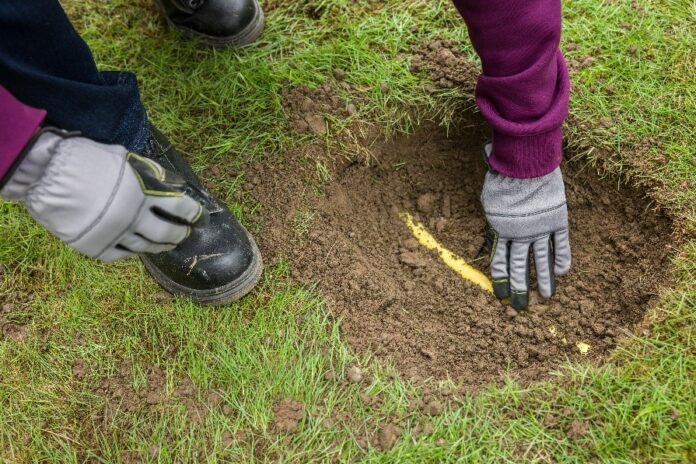As the summer construction season wraps up and colder weather sets in, FortisBC is urging British Columbians to prioritize safety when conducting digging or excavation work.
With an uptick in end-of-summer projects, FortisBC is reminding contractors and residents to contact BC 1 Call before breaking ground to help prevent damage to underground utility lines and ensure the well-being of themselves and their community.
FortisBC and BC 1 Call reported a four per cent increase in locate ticket requests from January to July 2024 compared to the same period in 2023, with a significant eight per cent spike between April and July 2024 as construction activity ramped up. Despite fewer damage incidents earlier this year, construction has accelerated in recent months and is expected to remain busy through the fall.
“We often see an increase in damage incidents to underground gas lines towards the end of summer and into the fall as projects wrap up,” said Jimmy Yip, damage prevention manager at FortisBC.
“It’s encouraging to see the increase in BC 1 Call locate ticket requests, and it’s crucial to follow the safety measures they provide. By adhering to safe digging practices, such as hand digging near marked lines, individuals can help avoid damaging underground utility lines, and ensure the safety of themselves and others.”
Landscaping and construction activities remain the primary causes of damages, accounting for the majority of incidents. While the percentage of damages caused by the absence of BC 1 Call locate tickets has decreased from 63 per cent in 2023 to 58 per cent this year, nearly 90 per cent of all damage incidents are caused by not following all of the required safe digging practices.
Follow these steps to practice safe digging:
- Request location information—at least three business days before digging. There’s no charge for this service and BC 1 Call will notify all member companies that have utilities buried at your site. Call BC 1 Call at 1-800-474-6886, or visit their website.
- Plan where it’s safe to dig—after you contact BC 1 Call, FortisBC will send you a map and information on where gas lines are buried on the site.
- Find the line—use the map provided to mark the location of gas lines on your site. Dig by hand first to expose the gas line if you are working in this area. Don’t use any power equipment within one metre of the gas line.
FortisBC’s gas system delivers vital energy to homes, businesses, schools, hospitals and other facilities every day. Damage to the gas system can cause unplanned interruptions in services and inconveniences. It’s important to keep the system operating at its peak capacity to ensure British Columbians have access to the energy they require.
For more information on safe digging practices, visit fortisbc.com/digsafe.
Be the first to know! Don’t miss out on breaking news and daily updates in your area. Sign up to MyKootenayNow News Alerts.






